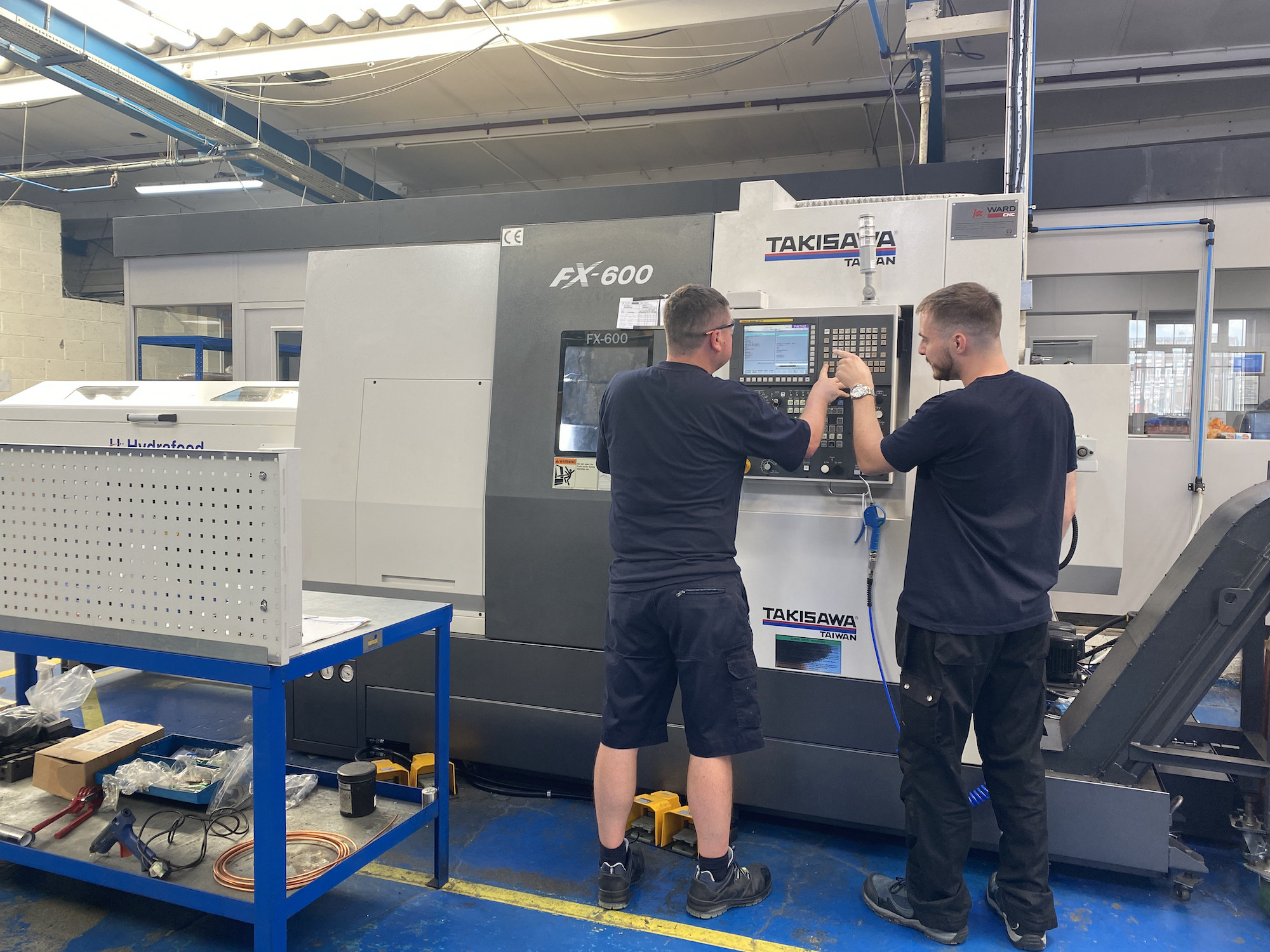Harris RCS has embraced the digital era to reap the benefits of factory automation. For more than four decades, the family-owned CNC machining company has committed to continuous business improvement and its latest investment in robotics and digital scheduling is transforming its operation with the help of smart factory technologies.
Gearing up for the next industrial revolution is all about businesses large and small embracing digitisation. However, British manufacturers, particularly SMEs, have been slow off the mark investing in Industrial Digital Technologies (IDTs). According to Make UK’s Innovation Monitor 2050 Report, only 13% of UK manufacturing companies have implemented IDTs to the stage at which they are seeing a significant improvement in productivity.
As an innovative SME, Harris RCS is going against the grain and has grasped the opportunity to gain a competitive edge by putting digital transformation at the heart of its business strategy.
The leadership team has sought the help of the internationally renowned Manufacturing Technology Centre (MTC) to deliver a series of projects designed to reap the benefits of digitisation. MTC is a business-catapult, accelerating the UK’s capability for innovation and process improvement and is supporting Harris RCS on its journey to Industry 4.0.
Robotics
Automation plays a critical role in building smart factory capabilities, driving efficiencies and freeing people up to get on with higher value work. MTC has helped Harris RCS access a Manufacturing Growth Fund grant to purchase its first two robots. The manufacturer took delivery of the robots in May and has been busy exploring how they can streamline operations.
Despite fears that the introduction of robots within manufacturing will invariably lead to job losses, Harris RCS is demonstrating how they can work alongside humans. Cobots, as they are known, are designed to enhance performance and create better and more productive working environments.
Harris RCS Operations Manager, Matthew Fielder, said: “Our talented staff are now experimenting with the robots to see how they can support our work in inspection and part marking. Everyone is excited about the potential for the robots to take away the repetitive tasks so that staff can focus on the more challenging and rewarding work that helps to drive our innovation. The robots will allow us to increase capacity and leverage talent to create new opportunities across the business.”
Digitalising the shop floor
When it comes to smart factory innovation, data is king. Accessing, analysing, and communicating real-time data allows for more informed decision making and ensures people are empowered by having all the information they need at their fingertips. The Government’s Made Smarter Review estimates that adopting digital technology could increase productivity by more than 25% by 2025. Harris RCS has taken the strategic approach of working with MTC on a number of projects in order to digitalise the shop floor, and to do this in the most effective way for a growing SME.
The goal is to create a smart factory, using business intelligence to break down barriers and offer full visibility into every stage of the manufacturing process. With the support from the MTC, the company is looking to make better use of the data from its ERP system to give everyone real-time insight into factory operations. This has also involved the team using its problem-solving skills to transform raw data into a user-friendly format which can be accessed remotely.
The company has already implemented electronic purchase order cards and developed a digital scheduling system. That system is now being taken to the next level with Harris RCS embracing Internet of Things (IoT). The business has connected seven of its machines to the system with the help of smart boxes. The boxes update the ERP and scheduling systems so that users can see exactly how work is progressing without having to wait until the end of the shift.
Matthew explained: “Embracing digitisation is already having a significant impact on productivity, streamlining everything from planning and production scheduling to purchasing. We no longer have to chase jobs because we can see how everything is progressing in real time and make informed decisions far quicker. We can let customers know exactly how many parts have been made at any given time and it is this visibility that is invaluable. Not only is it helping with efficiencies, it’s also helping us to offer improved service levels for our customers.”
Business benefits
Harris RCS has taken its entire workforce on the digital journey, utilising their talents to help programme robots, improve the scheduling system and explore other disruptive technologies such as additive manufacturing. The team is currently looking at taking digitalisation to a new level by investigating how the factory could go completely paperless.
“We want our staff to enjoy coming to work and do things that challenge and interest them”, said Matthew. “Everyone sees the impact these changes have on productivity, capacity and our ability to take on a greater volume and variety of work. If we don’t embrace digitisation now, then someone else will get there before us. This provides us with a strong competitive edge and there is real appetite for us to keep pushing the boundaries.”
Learn more about Harris RCS by taking a look at our website: https://harrisrcs.com





Stay In Touch